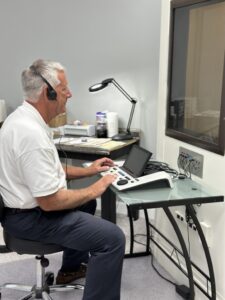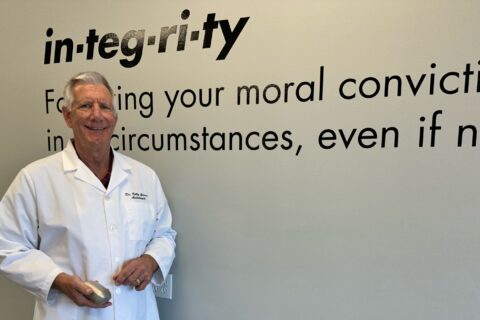What is the difference between an audiologist and a hearing instrument specialist?
When it comes to addressing hearing concerns, individuals may encounter two distinct professionals in the field: audiologists and hearing instrument specialists. Though their roles may seem similar at first glance, there are significant differences in their education, training, and scope of practice.
Education and Training
Audiologists are highly trained health care professionals with a doctoral degree in audiology (Au.D.) or a related field. Their educational journey typically spans eight years, encompassing extensive coursework, clinical rotations and research components. Audiologists are well-versed in anatomy, physiology, and pathology of the auditory system, as well as various diagnostic and treatment techniques for hearing-related issues. Their expertise enables them to identify and address complex hearing disorders, balance problems and auditory processing issues.
Hearing instrument specialists, also known as hearing aid specialists, have a different educational path. While requirements may vary by state, most hearing instrument specialists complete a shorter training program or apprenticeship that focuses primarily on the fitting and dispensing of hearing aids. These programs usually last between 6 months to 2 years, equipping them with the skills needed to assess hearing loss, recommend appropriate hearing aids, and provide basic hearing aid maintenance.
Scope of Practice
Due to their extensive education and training, audiologists have a broader scope of practice. They can perform comprehensive diagnostic assessments of hearing and balance, conduct sophisticated hearing tests and interpret the results to formulate precise treatment plans. Audiologists are qualified to treat various hearing conditions, including sensorineural, conductive, and mixed hearing loss, tinnitus, and auditory processing disorders. Additionally, they can offer rehabilitative services, auditory training, and counseling for individuals with hearing impairments and their families.
Hearing instrument specialists focus primarily on the fitting and dispensing of hearing aids. While they play a crucial role in helping individuals find appropriate hearing devices, their expertise is limited to addressing hearing loss with hearing aids. In-depth diagnostic evaluations and treatments beyond hearing aid fittings fall outside their scope of practice.
Expertise in Technology
Audiologists are well-versed in the latest hearing aid technology and assistive listening devices. With their in-depth knowledge of various hearing aid styles and features, they can recommend and customize devices to suit individual hearing needs. Audiologists can also provide programming, fine-tuning and adjustments to optimize hearing aid performance over time.

Hearing instrument specialists are proficient in the technical aspects of hearing aids. They can help patients choose appropriate hearing aids based on their hearing loss and lifestyle preferences. While they can adjust basic hearing aid settings, their knowledge might be limited when it comes to more advanced programming and troubleshooting.
Both audiologists and hearing instrument specialists play crucial roles in helping individuals address their hearing concerns. Audiologists, with their doctoral-level education and comprehensive training, offer a wider range of services, including diagnostic assessments, treatment options beyond hearing aids and personalized rehabilitative plans. Depending on the complexity of your hearing needs, choosing the right professional can make a significant difference in achieving the best possible hearing outcomes. Always consult with a qualified hearing health care provider to ensure you receive the appropriate care tailored to your unique hearing situation.
Are you or a loved one experiencing hearing loss? Let Dr. Kelly Gessert and Integrity Hearing help you reconnect with the ones you love. Schedule a consultation today. In Troy, call 636.528.4433. In Hermann, call 636.728.8840.


